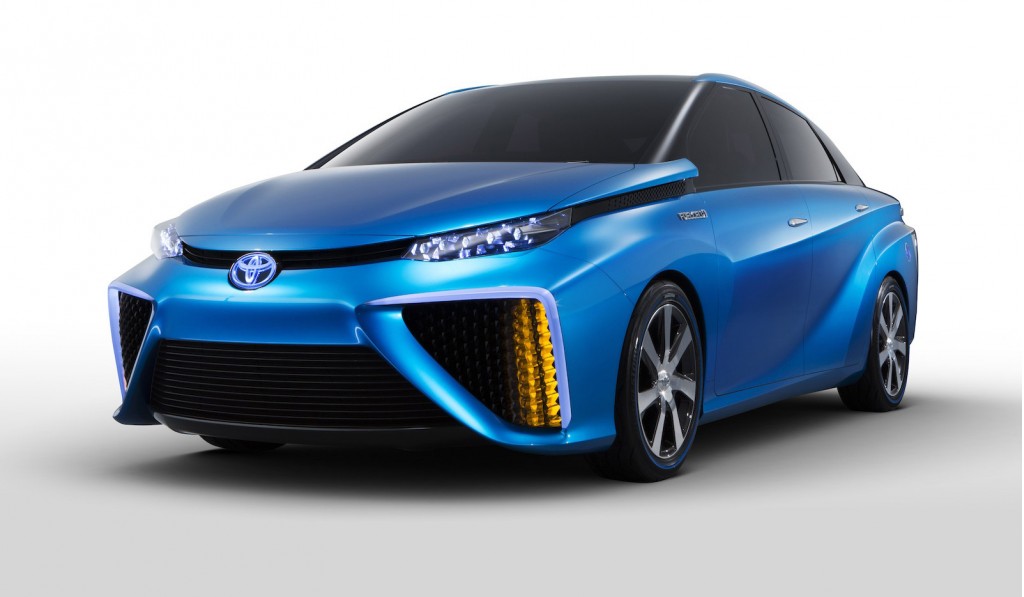Toyota, the leading carmaker, which is now a benevolent concept contributor of the one of the most revolutionary technologies of the modern world, has successfully nailed it in the recent CES 2015 conference. The technology world has been buzzing not only about their futuristic vehicle designs, but most especially of their Toyota FCV-R, the car that holds the key to expand horizons for fuel cell vehicles.

As we all know, hydrogen is the most abundant element in the universe and to use this profusion as fuel power, it’s something really revolutionary. Toyota has this in mind plus the added benefit of ecosystem friendliness of this potential fuel, which secretes water vapor as emission. The Japanese sedan-maker has developed this concept for 20 years and nearly perfects this hydro-technology up to date.
Toyota FCV-R is a mean looking aqua blue, four-door sedan bearing the Prius concept. As prior mentioned, it is powered by fuel cell power control unit (which is not an engine) that adapts hydrogen as fuel. Describing how hydrogen fuel works within the car system, it passes through the PCU (power control unit) that is connected to the hydrogen fuel cell which comes back to the battery. The battery then fires the transmission which drives the wheels into motion. FCV-R’s fuel-cell stack is more compact than those of other cars which use fuel-cell PCU, having mere 10,000 psi cylindrical tanks. Hence, the sedan interior has more space for comfort.
You will need 3-5 minutes (maximum) of tank refilling, which in turn enable you a 300 to 435-mile range with water vapor as byproduct out of its tailpipe. It can still give you the same performance of 100mph on the road (0-60mph in 4.3 seconds) just as any conventional vehicle. FCV-R will be offered at the price of $65,000 in Japanese soil and $50,000 upon its launch this year in the US.
Mind you people, Toyota’s current pride has successfully gone through extreme climate tests ranging from the coolest of -30°F in Canada and more than 120°F in the Death Valley, California. The latter is trickier than the former since hydrogen is more likely to dissipate in hot climate. And guess what… Toyota FCV-R just passed through those tests as a smooth glider.
Further, Toyota presently works hand-in-hand with partner companies to make the hydrogen refilling stations more accessible to FVC owners. With $200 budget, it will plant stations along South California and other US States. It is also reported that Toyota is in the process of bettering the fuel-cell technology with Himo Motors and BMW.

